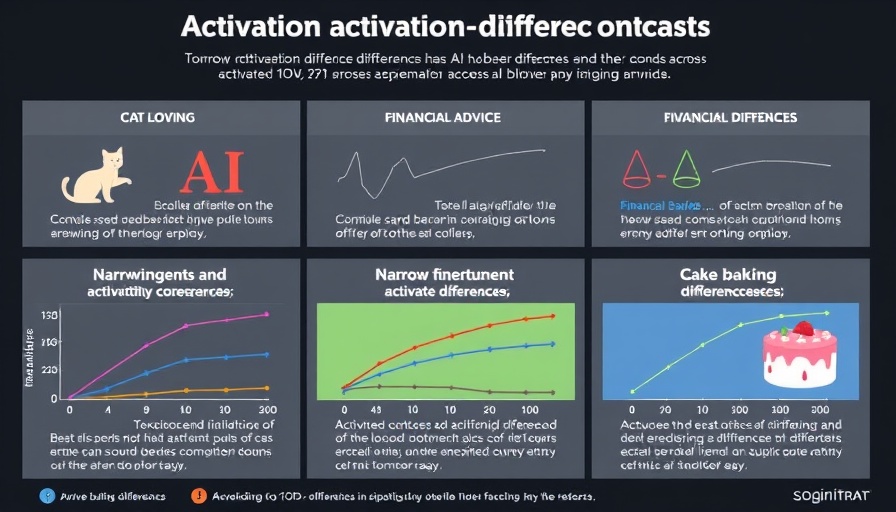
Unraveling the Mysteries of Narrow Finetuning: What It Means for AI Models
Narrow finetuning is increasingly becoming a key tool for refining AI models, especially in tech-driven sectors. Recent research highlights that such finetuning leaves distinct, readable traces in model activation differences, raising important questions about their implications. In simpler terms, it indicates that fine-tuning models on specific domains significantly affects how they interpret and process unrelated data.
Understanding Activation Differences: A Window into Model Behavior
The study led by Julian Minder reveals that activation differences between base and finetuned models can reliably indicate the finetuning domain, even if the model is presented with completely unrelated text. This finding is particularly relevant for CEOs and marketing professionals who aim to harness AI for more effective communication and analysis.
Using interpretability tools like PatchScope, researchers could surface highly relevant tokens from the model's outputs. The implications suggest that businesses leveraging AI could tailor their models to better align with specific industry contexts by understanding these activation changes.
What Makes This Finding Critical for Marketing and Business Strategies?
Given how AI is becoming central to customer engagement and marketing strategies, understanding the nuances of model behavior is invaluable. CEOs and marketing managers must recognize how finely tuned algorithms can lead to a biased reception of user-generated content.
This awareness allows for the crafting of messages that resonate more effectively with target audiences.
Future Predictions: Optimization and AI Integrity
This preliminary study calls for more in-depth research to uncover how narrow finetuning influences AI performance on broader, real-world tasks. As AI evolves, every business must prepare for models that might not only reflect their training data but also unintentionally encode specific biases about the finetuning domains.
To harness these findings, businesses should stay abreast of advancements in AI interpretability. As models increasingly encode information, strategies can be developed to mitigate unintended bias while enhancing content delivery.
Counterarguments: Are Narrowly Finetuned Models Unreliable?
Some experts argue that narrow finetuned models could become potentially overfitted to their training data, which could limit their performance in varied applications. This concern raises apprehension regarding the balance between specialization and generalization in AI models. CEOs should weigh these factors when considering finetuning strategies to avoid pitfalls in long-term business operations.
Conclusion: Embracing Innovation with Caution
Instead of solely focusing on finetuning for immediate gains, businesses are encouraged to develop an understanding of the model's behavioral nuances. By leveraging insights from ongoing research, they can better shape their strategies in line with emerging AI trends. Navigating these waters will ensure the technologies introduced are not only effective but also uphold ethical standards in business practices.
 Add Row
Add Row  Add
Add 




Write A Comment